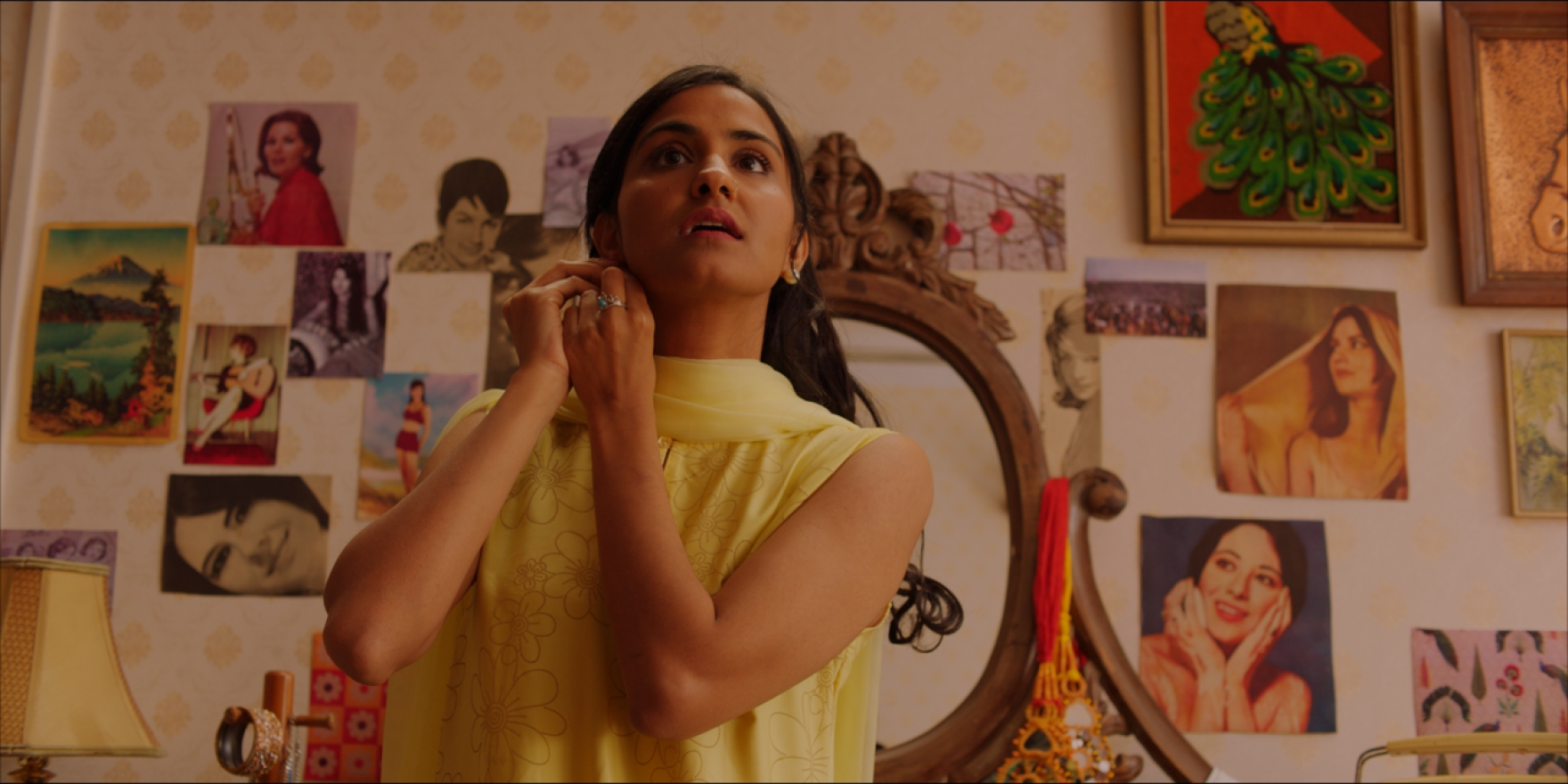This year’s Stony Brook Film Festival, which runs from July 18-27, will feature 36 films from 19 different countries. According to the festival’s founder and director, Alan Inkles — you can listen to WSHU's conversation with him here — many selections will see their world premieres at this festival. In other words, attending a screening at the university’s Staller Center isn’t a regular night at the movies.
The festival’s second-night selection (July 19 at 7:00 p.m.) is The Queen of My Dreams, the coming-of-age story of daughter Azra (played by actress Amrit Kaur) paralleled by coming-of-age flashbacks belonging to her mother (the young version of whom is played by Kaur as well, an ode to Bollywood casting styles).
WSHU’s Eda Uzunlar spoke with Canadian-American writer and director Fawzia Mirza about the film's creation, its origins, and the importance of the film festival environment in finding both community and meaning in her work.
WSHU: So Fawzia, I know The Queen of My Dreams follows a young woman and her mother's past. And I also know that it's semi-autobiographical. Tell me more about those parts that come from your own experiences.
FM: So the film, it's a dramedy. It centers the story of a girl named Azra who is queer, and Muslim, and Pakistani – and she and her mother are at odds.
FM: And when a tragedy occurs, Azra has to go to Pakistan. And it's through being in Pakistan that we are sent into a series of flashbacks. And the flashbacks center on important moments in her and her mother's life. The film is definitely inspired by real moments in my life. You know, the character is queer, and Muslim, and Pakistani. But I think with this film – when I was writing it, I really found the story when I allowed the characters to kind of do what they wanted. You know, there's also collective history and collective memory that's in this movie. And I spoke to some elders about their experiences. I did research on what Pakistan was like in the 60s.
That really allowed me to tell a more romantic story.
WSHU: And I want to ask you about the decision to have the actress who plays Azra, the daughter, also play her own mother in those flashbacks. What's the meaning behind that?
FM: Yeah. You know, The Queen of My Dreams is such a reflection of love for who we are, where we've been and how we got there. I think I realized as a person that I am an individual, and also I am part of a legacy of other people, many, many other people who came before me. And I am me, and I am my mother, and I am my grandmother — and that is beautiful. I just wanted people to — the love that they have for the protagonist, I wanted them to carry that into the love they have for the mother.
WSHU: Finally, this film has been selected for some major festivals. Tell me more about its path to the Stony Brook Film Festival and what folks might expect.
FM: The film festival circuit has been very important to me, and it's really how I came up. And so when I think about, you know, where I want my movies and my work to play, all of my work has played at film festivals. And I think they matter because not everyone can get to the cinema, you know, the big, huge movies and also a small independent film doesn't make it to big cinemas. And I make movies for people to watch them. I don't make them in a vacuum. I make them for us. You going to the movies matters to me. You watching my work matters to me. You being with others and having an experience or laughing and crying at the same time matters to me.


